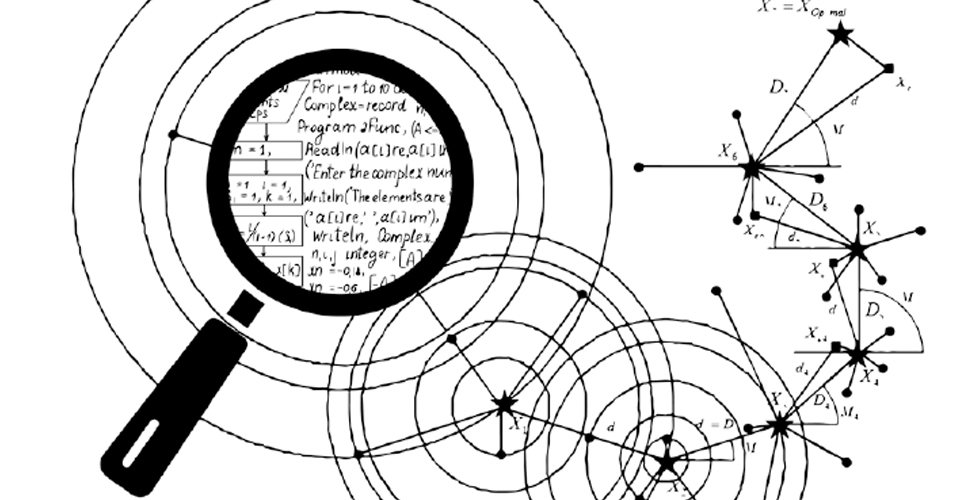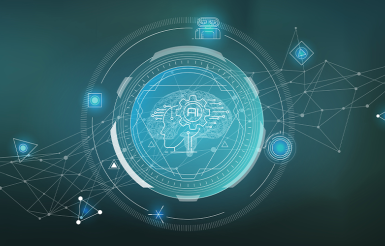How can humans keep the upper hand? Report on the ethical matters raised by algorithms and artificial intelligence
26 December 2017
The CNIL releases a report on the ethical matters of algorithms and artificial intelligence, which is the outcome of a wide public debate launched in 2017. Isabelle FALQUE-PIERROTIN, Chair of the CNIL, of the Article 29 Working Party and of the International Conference of Data Protection and Privacy Commissioners, presented the report in the presence of Mounir MAHJOUBI, Secretary of State in charge of Digital Affairs, and Cédric VILLANI, Deputy who has been tasked by the Prime Minister with examining France's strategy on artificial intelligence.

Public awareness around the role of algorithms and artificial intelligence in our everyday lives has been rising subsequently in the past few months: the role of social media in the U.S. presidential election is an example of such an interest. While several initiatives on the governance of artificial intelligence are currently being undertaken both in France and in the European Union, this report aims at submitting an overview of the main ethical matters which are raised and to increase the collective knowledge on these issues in civil society.
An innovative public debate on algorithms and artificial intelligence
In our digital world, algorithms and artificial intelligence are frequently at play: for instance, to predict spreading flu, to advise books to customers, to suggest where to patrol to law enforcement officers, to drive autonomous cars, to make a medical diagnosis, to personalize a newsfeed on a social media etc. Complex decisions, sometimes tricky, are delegated to increasingly autonomous systems with the development of machine learning (AI) algorithms. The rising use of algorithms, resting upon an unprecedented amount of data available in every sector, brings up many questions.
The Digital Republic Bill recently gave a unique assignment to the French Data Protection Authority (CNIL) which is to lead a reflection on the ethical and societal matters raised by the rapid development of digital technologies. Algorithms and AI appeared as a natural fit for this new assignment.
This report is the result of a large public debate opened up by the CNIL in 2017: around 3.000 people took part in the 45 debates and events which has been put up by 60 partners mainly in France but also overseas (through The Future Society at Harvard Kennedy School). Citizens also gave body to this large and open public debate on the occasion of a special day of debates at Montpellier on October 14th.
Politics, education, culture, healthcare, law, security, finance or human resources have all been questioned by a wide range of partners: research centers, public institutions, trade unions, think tanks, companies, etc.
“Through this debate, we want to make sure that artificial intelligence (AI) increases humans instead of supplanting them, we also want to state that France can be at the front line when it comes to finding a new ethical governance model of AI. We collectively should seek technologies that allow humans to keep the upper hand, transparency and responsibility being at the core of this interaction” (Isabelle Falque-Pierrotin, Chair of the CNIL)
Which answers to the major ethical concerns raised by algorithms and AI?
Towards two founding principles: fairness, continued attention and vigilance
The debates brought out two founding principles so as to put artificial intelligence at the service of humans. Those principles could be asserted as a new set of principles and fundamental rights in the digital era, new “system rights” which could be set up at the core of the international governance of the Internet:
- A principle of fairness applied to all sorts of algorithms which takes into account not only their personal outcomes but their collective ones as well. In other words, each algorithm – whatever it deals with personal data or not – should be fair towards its users, not only as consumers but also as citizens, or even as collectives, communities who can also be significantly impacted by these technologies. The users’ interest must prevail in any case. For instance, the concept of “fairness” appears as particularly relevant when it comes to thinking about the impact of the social media on the public sphere in our democracies (segmentation of the body politic through informational personalization), or the collateral outcomes of “predictive policing” algorithms on communities and neighborhoods.
- A principle of continued attention and vigilance : its point is to rethink and to organize how every single player (designers, companies, users) involved in algorithmic systems should take action so as to maintain some sort of perpetual, methodical and deliberative questioning around these evolving technologies. This represents a direct answer to new requirements associated with algorithms and artificial intelligence; technologies that involve numerous players throughout their development, and whose outcomes are quite often unforeseeable and lead to excessive trust. In other words, it is about being “vigils” of the digital society through practical measures and procedures.
The report adds some organizational principles regarding algorithmic systems’ ability to be understood and held responsible, as well as the nature of human intervention in decision making.
6 policy recommendations
These principles begin to take shape through 6 policy recommendations intended for both public authorities and civil society (companies, citizens, etc.):
- Fostering education of all players involved in algorithmic systems (designers, professionals, citizens): digital literacy must allow every human to understand what is at stake when algorithms are at play;
- Making algorithmic systems comprehensible by strengthening existing rights and by rethinking mediation with users;
- Improving algorithmic system’s design at the service of freedom, to prevent the “black box” effect;
- Creating a national platform in order to audit algorithms;
- Increasing incentives for research on ethical AI and launching a major participative national cause around a general interest research project;
- Strengthening ethics in companies (for example, by creating ethics committees, by spreading good practices in each sector or by revising codes of ethics).
The ethical concerns raised by algorithms and artificial intelligence
In order to express principles and policy recommendations, the public debate led by the CNIL shed beforehand the light on 6 substantial ethical matters associated with algorithms and AI:
- Autonomous machines: a threat to free will and responsibility. While the improvement of digital technologies is always more striking over the years, free will and decision-making are sharply questioned. Substantial choices may now be taken through automated, if not autonomous, processes. In these conditions, how is it likely that the potential of algorithms gets unlocked without taking into account the risks of putting excessive trust on so-called “neutral” machines who would supposedly never fail? How appealing it is to release ourselves from the deep commitment inherent to taking decisions, to judging, to taking responsibility? How can we ensure that algorithmic systems do not water down responsibilities regarding the numerous players which are involved throughout the process?
- Biases, discrimination and exclusion. Algorithms and artificial intelligence can create biases, discrimination or even exclusion towards individuals and groups of people. If such outcomes can be deliberate, it is substantially more problematic from the moment unintended bias is likely to occur with machine learning algorithms. How should we face this new challenge?
- Algorithmic profiling: personalization versus collective benefits. Digital technologies as they historically evolved with the Internet are known for their unique potential for personalization thanks to algorithms. Individuals do get plenty of satisfaction from profiling and segmentation. However, personalization can also enhance threats to collective benefits which are essential to our societies (political and cultural pluralism, mutualization of risk).
- Preventing massive files while enhancing AI: seeking a new balance. Artificial intelligence by being based on advanced techniques of machine learning requires a significative amount of data. Still, data protection laws are rooted in the belief that individuals’ rights regarding their personal data must be protected and thus prevent the creation of massive files. AI brings up many hopes: to what extent the balance chosen by the lawmaker and applied until now should be renegotiated?
- Quality, quantity, relevance: the challenge of data selection. The stakes are also high when it comes to choosing the data which will be processed by an algorithm: every data selection process should seek quantity, accuracy and absence of biases. The need for each individual to remain critical instead of putting immoderate trust in the machine is here at play.
- Human identity at the age of artificial intelligence. Machines are getting increasingly autonomous. Some patterns of hybridization between humans and machines can even be noticed. How accurate and how desirable is it to use phrasing such as “ethics of algorithms”? How should we view humanoid robots which are likely to create substantial emotional responses on individuals?



